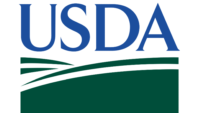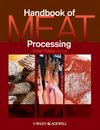The U.S. Department of Agriculture (USDA) is seeking nominations for the Paper and Packaging Board to fill three member seats with terms expiring on Dec. 31, 2023. Nomination applications are due by May 15, 2023.
The board is seeking nominees for one member seat representing the South Region, one member seat representing the remainder of the U.S. region and one member seat representing importers. Appointed members will serve three-year terms.
The U.S. South Region consists of Alabama, Arkansas, Delaware, Florida, Georgia, Kentucky, Louisiana, Maryland, Mississippi, North Carolina, Oklahoma, South Carolina, Tennessee, Texas, Virginia and West Virginia.
Nominees must manufacture or import 100,000 short tons or more of paper and paper-based packaging in a marketing year. The eight-member board consists of seven manufacturers from two regions and one importer. More information about the board is available on the Agricultural Marketing Service (AMS) Paper and Packaging Board webpage and on the board’s website at paperandpackaging.org.
Applications are available on the board’s website or by contacting Sarah Meiburg, senior director, Industry Outreach, Paper and Packaging Board, at 703-935-8862 or by email at smeiburg@paperandpackaging.org. Applicants may also contact USDA Marketing Specialist Marlene Betts at 202-494-6633 or by email at marlene.betts@usda.gov.
Since 1966, Congress has authorized the development of industry-funded research and promotion boards to provide a framework for agricultural industries to pool their resources and combine efforts to develop new markets, strengthen existing markets and conduct important research and promotion activities. AMS provides oversight of 22 boards, paid for by industry assessments, which helps ensure fiscal accountability and program integrity.
AMS policy is that diversity of the boards, councils and committees it oversees should reflect the diversity of their industries in terms of the experience of members, methods of production and distribution, marketing strategies and other distinguishing factors, including but not limited to individuals from historically underserved communities, that will bring different perspectives and ideas to the table. Throughout the full nomination process, the industry must conduct extensive outreach, paying particular attention to reaching underserved communities, and consider the diversity of the population served and the knowledge, skills and abilities of the members to serve a diverse population.
Source: USDA




Report Abusive Comment